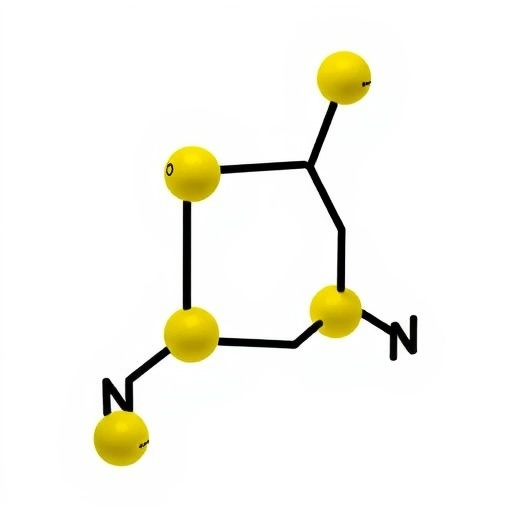A groundbreaking study published in Molecular Diversity has unveiled innovative insights into combating fungal infections through the development of perillaldehyde derivatives, which show promise as potent laccase inhibitors. With the pressing global health issue of antifungal resistance on the rise, this research outlines a potential pathway for the synthesis of novel antifungal agents. The dynamic nature of laccases, a class of oxidoreductases found in various fungi and plants, has been recognized for their vital role in mediating oxidative processes. Researchers led by Cui et al. have made significant strides in understanding how these enzymes can be exploited for antifungal applications.
The rationale behind this study stems from the increasing prevalence of multidrug-resistant fungal infections that pose serious threats, particularly to immunocompromised patients. Traditional antifungals often fail due to resistance, highlighting the urgency for innovative treatments. Laccases are pivotal in the fungal life cycle, involved in processes like lignin degradation and the detoxification of various substrates. By inhibiting their function, the researchers aim to establish a new therapeutic strategy that could mitigate fungal growth and infection rates.
Cui and colleagues undertook a meticulous approach to design and synthesize novel derivatives of perillaldehyde. The choice of perillaldehyde as the parent compound is significant. This natural compound, derived from the Perilla frutescens plant, boasts a range of biological activities, including antiviral, antimicrobial, and anti-inflammatory effects. By modifying its structure, the researchers aimed to enhance its inhibitory effects on laccase activity while ensuring minimal toxicity to human cells. This delicate balance is crucial for the development of any therapeutic agent intended for systemic use.
The synthesis of these perillaldehyde derivatives involved several advanced chemical techniques, building upon established methodologies in the field of organic chemistry. The optimization of synthetic routes was crucial to ensure high yields and purities of the final compounds. Following synthesis, a comprehensive antifungal evaluation was conducted, wherein the derivatives were tested against various fungal strains known for their laccase activity. This aspect of the study is critical as it correlates the biochemical inhibition with potential clinical outcomes.
The results of the antifungal assays were promising, demonstrating a significant inhibitory effect of several perillaldehyde derivatives on fungal growth. The inhibition of laccase activity not only affects fungal metabolism but also disrupts biofilm formation—a key factor in fungal virulence and resistance. The study provided quantitative data showing how the modified compounds could serve as effective agents against pathogenic fungi, potentially leading to new treatments that are less likely to encounter resistance.
In their discussion, the authors emphasized the need for further studies to fully understand the mechanism of action of these compounds. Investigating how these derivatives interact with laccase at the molecular level will pave the way for rational drug design, allowing for the creation of even more effective laccase inhibitors. Additionally, understanding the structure-activity relationship among the synthesized derivatives could provide critical insights into optimizing their efficacy.
The research also highlighted the importance of in vivo studies, which are essential for evaluating the safety and effectiveness of these compounds in clinical settings. Preclinical models will be necessary to understand pharmacokinetics and pharmacodynamics, key parameters that influence the eventual translation of these findings into clinical therapies. The researchers expressed optimism about future trials, believing that their findings could significantly contribute to the arsenal of antifungal agents available to clinicians.
Moreover, the study touches on the broader implications of targeting laccases in fungal infections. With the increasing emergence of environmental fungi resistant to common antifungal treatments, the potential application of laccase inhibitors could extend beyond clinical use to agricultural practices. This dual application could aid in managing fungal pathogens affecting crops, thereby enhancing food security as well.
The release of these findings has sparked interest in the scientific community, with researchers from various disciplines discussing the implications of these results. The innovative approach to drug design exemplifies the collaborative nature of modern science, where chemists, biologists, and pharmacologists work together towards common goals. This research not only contributes valuable data but also fosters a dialogue about the future of antifungal treatments.
Overall, Cui et al.’s study represents a significant step forward in the ongoing battle against antifungal resistance. By focusing on laccase as a target, the researchers have opened new avenues for therapeutic interventions that could save countless lives. As the field continues to evolve, the lessons learned from this study may prove vital in shaping the future of antifungal drug discovery.
In conclusion, the design and synthesis of perillaldehyde derivatives as potential laccase inhibitors represent a critical advancement in antifungal research. The promising results from the initial evaluations provide a strong foundation for future investigations and highlight the urgency for novel treatments in the face of rising drug resistance. Continued interdisciplinary efforts, combined with innovative synthesis approaches, will be paramount in overcoming the challenges posed by fungal infections.
As researchers build upon these findings, the hope is that the next generation of antifungal agents will emerge, rooted in the principles of modern medicinal chemistry and guided by the insights gained from studies like this. The journey from laboratory synthesis to clinical application is complex and fraught with challenges, but the potential rewards are enormous in addressing one of the most pressing health concerns of our time.
Subject of Research: Antifungal Evaluation of Perillaldehyde Derivatives as Laccase Inhibitors
Article Title: Design, synthesis and antifungal evaluation of perillaldehyde derivatives as potential laccase inhibitors.
Article References:
Cui, Z., Zheng, Y., Ou, N. et al. Design, synthesis and antifungal evaluation of perillaldehyde derivatives as potential laccase inhibitors.
Mol Divers (2025). https://doi.org/10.1007/s11030-025-11299-z
Image Credits: AI Generated
DOI:
Keywords: Antifungal resistance, Laccase inhibitors, Perillaldehyde derivatives, Drug discovery, Molecular biology




